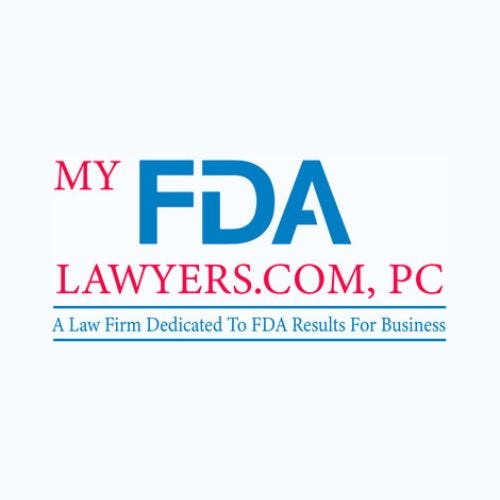In the realm of product regulation and compliance, particularly in the United States, the Food and Drug Administration (FDA) plays a pivotal role in safeguarding public health by ensuring the safety, efficacy, and quality of various consumer products. For businesses involved in the importation and distribution of FDA-regulated products, compliance with FDA regulations is not only crucial for market access but also for avoiding legal entanglements. Import alerts issued by the FDA are one such regulatory tool aimed at maintaining the integrity of the market and protecting consumers. In this article, we delve into the significance of import alerts, offering insights from FDA lawyers on how businesses can navigate this complex regulatory landscape effectively.
Understanding FDA Regulations
Before delving into import alerts, it's essential to grasp the broader context of FDA regulations. The FDA regulates a wide range of products, including food, drugs, medical devices, cosmetics, and dietary supplements. Businesses involved in the importation of these products must comply with FDA requirements, which often involve product registration, labeling, manufacturing standards, and more. Non-compliance can lead to serious consequences, such as product seizures, injunctions, and legal actions.
Role of FDA Lawyers
FDA lawyers specialize in navigating the intricate regulatory framework established by the FDA. They assist businesses in understanding and complying with FDA regulations, providing guidance on various matters such as product approval, labeling requirements, facility inspections, and import compliance. Import alerts are among the areas where FDA lawyers offer invaluable expertise, helping businesses mitigate risks and address regulatory challenges effectively.
Import Alerts: What Are They?
An import alert is a notification issued by the FDA to its field staff and the public concerning a firm, product, or shipment that appears to violate FDA regulations. Import alerts are often issued when the FDA has evidence or concerns regarding the safety, efficacy, or quality of imported products. They serve as a mechanism for FDA inspectors at ports of entry to detain products that fall under the alert without physical examination, thereby preventing their entry into the U.S. market until compliance issues are resolved.
Types of Import Alerts
Import alerts can vary in scope and severity, depending on the nature of the violation and the risk posed to public health. Some common types of import alerts include:
-
Detention Without Physical Examination (DWPE): This type of import alert allows FDA inspectors to detain products at the border without conducting a physical examination. It is typically issued when there is evidence of repeated violations by a particular firm or when the FDA has concerns about the safety of specific products.
-
Countrywide Alert: A countrywide alert applies to all products from a particular country or region, often due to widespread regulatory violations or safety concerns.
-
Product-specific Alert: This alert targets a specific product or class of products that have been found to violate FDA regulations. It may be issued when the Claims Reviews a pattern of non-compliance or safety issues with a particular product.
FDA Registrations and Import Alerts
One of the crucial aspects of import compliance is FDA Registrations. Many FDA-regulated products, such as food facilities, medical devices, and drug establishments, are required to register with the FDA. Failure to register or maintain accurate registration information can trigger import alerts and other enforcement actions. FDA lawyers advise businesses on the proper procedures for product registration and help them maintain compliance to avoid disruptions in their supply chain.
Claims Reviews and Import Alerts
In addition to product registration, the FDA Import Alerts product labeling and advertising claims to ensure they are truthful and not misleading. Misleading claims can result in import alerts and other enforcement actions. FDA Lawyers assist businesses in reviewing their product claims to ensure compliance with FDA regulations, thereby reducing the risk of import alerts and related penalties.
Responding to Import Alerts
Receiving an import alert can be a daunting experience for businesses, as it may disrupt their operations and tarnish their reputation. However, prompt and strategic action is crucial for resolving import alert issues effectively. FDA lawyers play a vital role in helping businesses respond to import alerts by:
- Conducting a comprehensive review of the import alert and associated regulatory issues.
- Developing a remediation plan to address the underlying compliance issues.
- Communicating with FDA officials to resolve the alert and facilitate the release of detained products.
- Representing the business in discussions with the FDA and advocating for a favorable outcome.
Conclusion
In conclusion, import alerts issued by the FDA are a critical tool for ensuring the safety and integrity of the U.S. market for FDA-regulated products. Businesses involved in importation must understand the implications of import alerts and take proactive measures to maintain compliance with FDA regulations. FDA lawyers play a vital role in guiding businesses through the complexities of import compliance, helping them navigate regulatory challenges and mitigate risks effectively. By working closely with experienced legal counsel, businesses can minimize the impact of import alerts and safeguard their interests in the highly regulated landscape of FDA-regulated products.


No comments yet